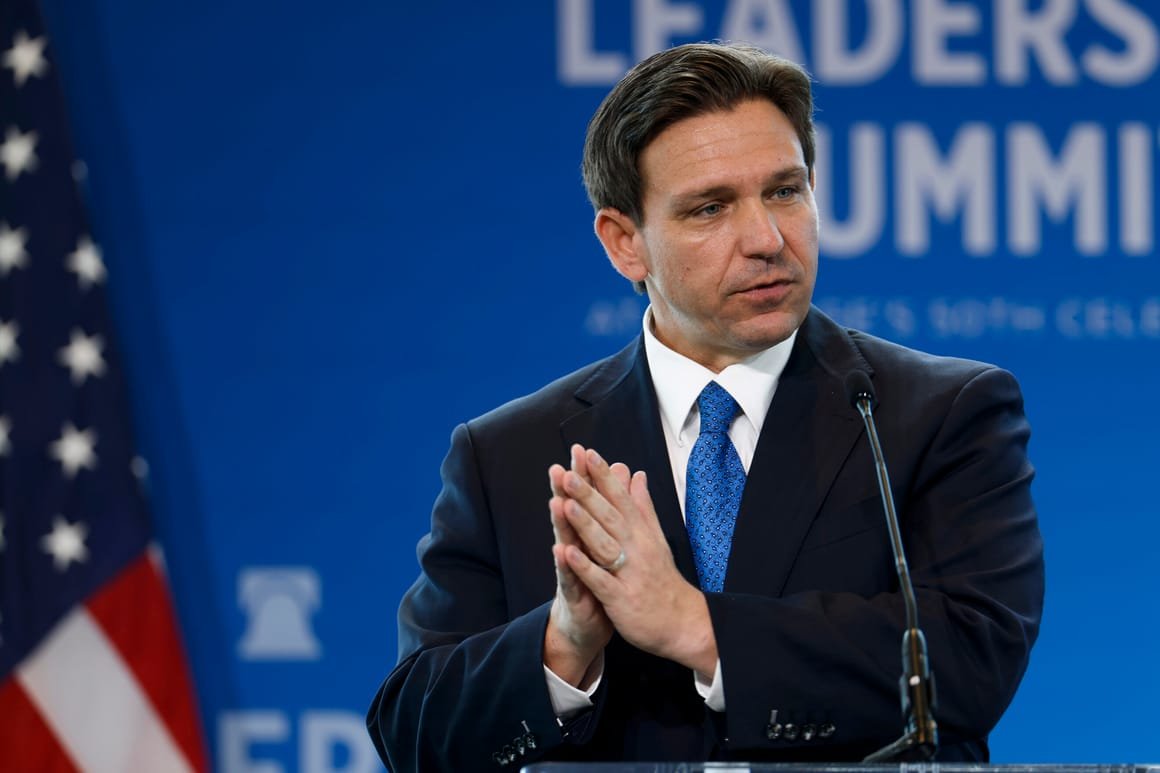The Rise of Ron DeSantis and His Controversial Practices Ron DeSantis’s ascent in the political realm can be traced to his early career and unwavering dedication to conservative ideals. Initially gaining national recognition as a congressman representing Florida, DeSantis leveraged his background as a Navy veteran and Yale graduate to position himself as a formidable
The Rise of Ron DeSantis and His Controversial Practices
Ron DeSantis’s ascent in the political realm can be traced to his early career and unwavering dedication to conservative ideals. Initially gaining national recognition as a congressman representing Florida, DeSantis leveraged his background as a Navy veteran and Yale graduate to position himself as a formidable candidate in the political landscape. Upon becoming governor of Florida in 2019, he quickly implemented various policies that sparked considerable debate regarding their racial implications. This led to perceptions of DeSantis as a polarizing figure, particularly in relation to race and minority issues.
One of the most contentious aspects of DeSantis’s governance has been his approach to the Black Lives Matter protests that erupted in 2020 following the murder of George Floyd. His administration’s response to these protests drew heavy criticism, especially for the aggressive tactics used by law enforcement to disperse demonstrators. The heavy police presence and subsequent arrests were viewed by many as indicative of a broader trend of racial inequity. Critics argue that his handling of these protests reflected a dismissive attitude toward the legitimate grievances of Black communities, thereby exacerbating existing tensions between the government and minority populations.
Moreover, DeSantis’s educational policies, particularly those pertaining to the teaching of race and history, have also raised eyebrows. His administration has actively promoted legislation that limits discussions on systemic racism within the classroom, resulting in significant pushback from educators and civil rights organizations. These actions are perceived by many as attempts to whitewash history and diminish the historical and ongoing impact of racism in society. By marginalizing the narratives of minority voices, DeSantis’s policies contribute to a climate where racial inequities can thrive rather than be addressed.
The culmination of these practices has reinforced perceptions of Ron DeSantis as a figure who dismisses the narratives of racial injustice, ultimately shaping his political identity and inviting further scrutiny on the implications of his governance concerning racial issues.
The Impact of DeSantis’s Policies on Florida’s Communities

The policies initiated under Ron DeSantis’s administration have sparked considerable debate and concern among the diverse communities of Florida. A significant focus has been placed on the repercussions of these policies for marginalized groups, which raises questions about social equity and justice. For instance, the Alligator Alcatraz incident, which received widespread attention, exemplified the tension between state policies and community sentiment. This incident was emblematic of how DeSantis’s approach often provokes a dramatic response from constituents, particularly within communities that feel targeted or marginalized.
Furthermore, the ban on property ownership for Chinese and Asian Americans has incited profound worry among these communities. Such policies not only contribute to a sense of exclusion but also tarnish the image of Florida as a welcoming state. The implications of these actions extend beyond immediate community relations; they influence public perception and the broader social fabric of the state. Many residents, feeling that their interests are overlooked, have begun voicing their dissent, leading to growing backlash against the administration.
The consequences of these contentious policies are palpable in the electoral landscape of Florida. As marginalized communities increasingly mobilize in response to DeSantis’s policies, it is evident that these actions could sway voting behaviors in upcoming elections. Floridians from various backgrounds are expressing their discontent more vocally, potentially signaling a shift in political allegiances. The intersection of public policy and community relations under DeSantis’s leadership poses critical questions about the state’s future governance and the role of inclusivity in shaping policies that impact all Floridians.
Failed Campaigns and Electoral Repercussions
Ron DeSantis’s recent electoral endeavors have sparked significant discussion and analysis, particularly in light of his attempt to run for the presidency. Despite immense financial backing and expansive campaign efforts, his presidential campaign has ultimately been viewed as a failure. One of the most striking aspects of his candidacy is the substantial amount of resources he allocated, which did not translate into electoral success, raising questions about the effectiveness of his strategies.
The trajectory of his campaign reveals a telling narrative about the electorate’s shifting sentiments and priorities. DeSantis, once heralded for his tenure as Governor of Florida, has faced increasing scrutiny due to his contentious policies and decisions, many of which have been perceived as racially charged. These actions have not only alienated key demographics but also led to a significant erosion of support within his own party. The repercussions of this discontent became evident as he struggled to secure a single county during the primaries, which is a stark contrast to the expectations set by his financial capacity and campaign organization.
Moreover, the implications of losing his home state of Florida are profound. Traditionally regarded as a critical battleground and a stepping stone for any candidate’s aspirations, a defeat in Florida compromises DeSantis’s viability on the national stage. His inability to connect with voters and address their concerns has marginalized him further, creating a landscape where his previous achievements appear overshadowed by political missteps. The juxtaposition of high expenditure against minimal electoral gain underscores the challenges faced by candidates who may fail to align their messaging with the evolving concerns of their constituents, particularly around pressing issues of race and discrimination. Overall, the fallout from DeSantis’s campaign highlights the fragile nature of political support and the necessity for responsiveness to voter sentiment in contemporary elections.
The Future of Ron DeSantis in Politics
The political landscape in the United States is ever-evolving, and Governor Ron DeSantis finds himself at a crucial juncture amid increasing scrutiny regarding his policies and ideologies. His alignment with controversial figures and adoption of provocative strategies—often perceived as racially divisive— raise significant questions about his future viability as a political leader. As DeSantis navigates through significant backlash, his actions could have far-reaching implications, not only for his career but for the Republican Party and the broader political context in America.
DeSantis’s support of racially charged legislation, coupled with his engagement with extremist elements, has attracted both loyalty and discord. While his base continues to affirm his policies as a reflection of conservative values, critics argue that such alignment may alienate moderate voters crucial for success in national elections. The risk of straying too far into divisive rhetoric or policies could potentially jeopardize his aspirations for higher office, should he choose to campaign for the presidency in the 2024 election cycle.
Furthermore, DeSantis’s foreign policy pledges have not gone unnoticed. Vowing to adopt stances that resonate with a nationalist agenda raises concerns about their implications for international relations and domestic coherence. As he pursues ambitions that may appeal to a specific segment of the electorate, the potential backlash from a more diverse and moderate electorate could hinder his progression within a rapidly changing political climate.
Ultimately, the future of Ron DeSantis in politics hinges on his ability to navigate these controversies. The repercussions of his actions will not only shape his political trajectory but may also influence the Republican Party’s reception in the upcoming elections, signaling a potential shift in voter sentiment depending on how effectively he addresses these criticisms. The intersection of his policies and public perception will undoubtedly play a pivotal role in determining both his career and the evolving narrative of American politics.
 Internet Connectz
Internet Connectz 










Leave a Comment
Your email address will not be published. Required fields are marked with *